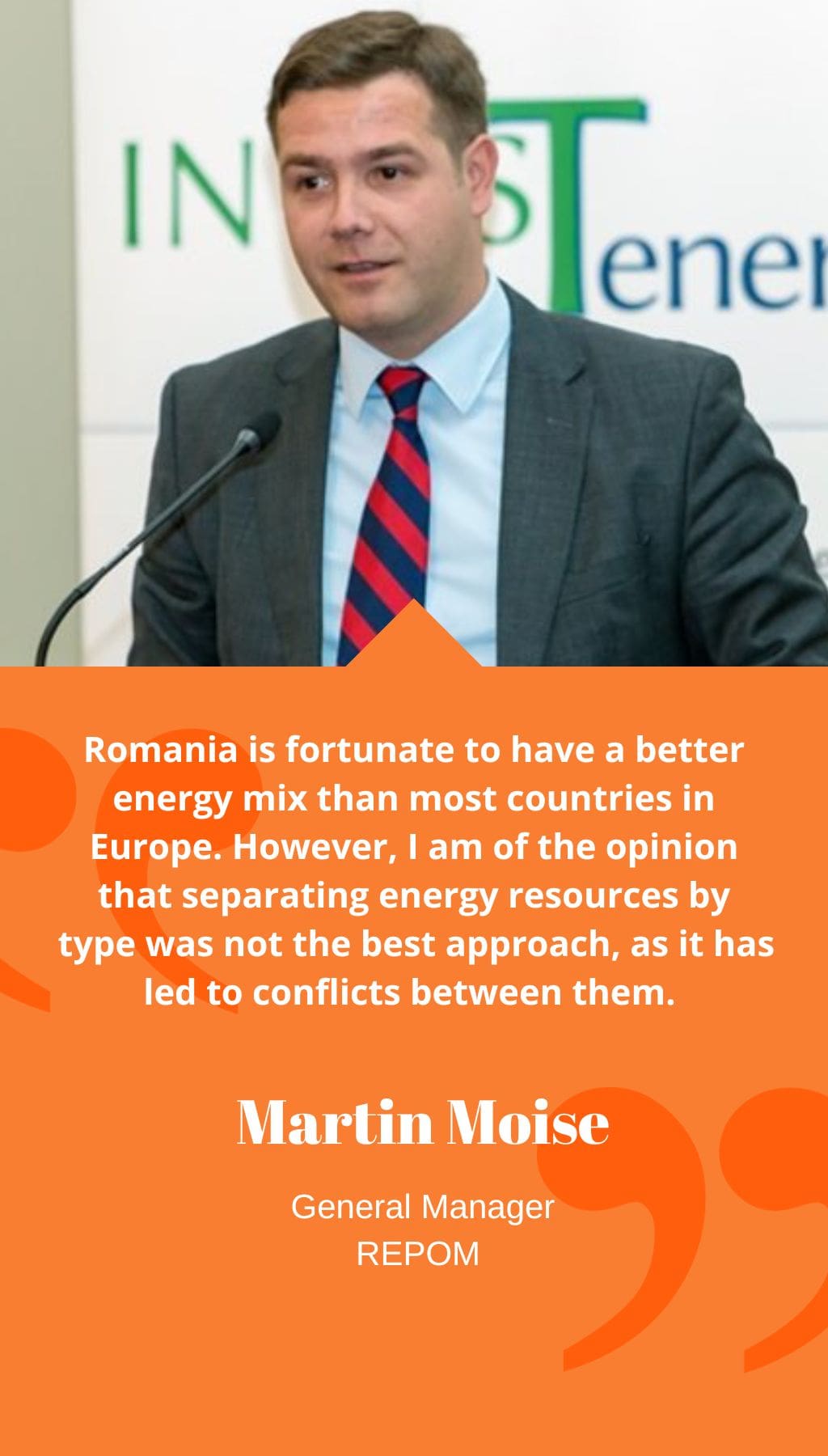
- Romania | 31July 2019

Can you please provide an overview of Repom’s history and services within the energy sector, specifically in Romania?
Repom, formerly known as TTM, was established in 2008 with the main goal of transferring knowledge about renewable energy from Germany to Romania. As the renewable energy sector in Romania began to grow in 2007-2008, we recognized the potential for growth and realized there was a lack of industry know-how available. Since then, our services have expanded to include development, site selection, authorization acquisition, financing management, and project management. Essentially, we act as an investor’s right-hand throughout the entire project lifecycle.
How has the local market reacted to changes in energy legislation in recent years, and what impact has it had on the industry?
The initial investments were made under the Green Certificates scheme, which closed on December 12, 2016. Despite the generous support scheme, there were abrupt and poorly assessed changes made to the initial conditions that caused many projects to go bankrupt. However, Romania has seen the highest investment in energy from private sources since the 1990s, totaling EUR 8Bn and the installation of 5,000 MWh, thanks to the Green Certificates scheme. Although some investors had to dismount their turbines and relocate them, the industry is currently recovering, and new measures are being taken to stimulate investment.
What measures are needed to stimulate new investments, and how have circumstances evolved since the legislative changes?
To attract new investments in Romania, it is essential to create a predictable and trustworthy framework that engenders confidence. As senior vice president at PATRES and also part of Repom, I played a crucial role in engaging with authorities to create this framework. Although previous legislation, such as Law 220/2008, was modified almost every year, we have managed to pass more stable laws like GEO 24/2017 and Law 184/2019, with the hope that these new regulations stay in place for a longer period of time. Open dialogue between industry leaders and public authorities is crucial for creating fruitful conversations, and PATRES achieved this by maintaining a broad vision and a strategy of “fairness.”
In the course of its operations, how did PATRES overcome the challenge of having productive conversations with public authorities?
The industry has often faced the challenge of having fruitful conversations with public authorities, and PATRES was not an exception. To overcome this challenge, we were persistent in getting them to listen to us. While it is not necessarily difficult to meet with public authorities, it can be a challenge to have them truly understand the issues faced by the industry. To achieve this, we maintained a broad vision, considering more than just our own interests as an organization. We strongly believe that an inclusive approach leads to healthier decisions. In this regard, we employed a strategy of fairness throughout the dialogue. Of course, concessions had to be made on our side as well, but overall, we found that this approach was effective in bringing about positive change.
Regarding the energy transition in Romania, how do you anticipate its unfolding and what are the major obstacles hindering it?
Romania is fortunate to have a better energy mix than most countries in Europe. However, I am of the opinion that separating energy resources by type was not the best approach, as it has led to conflicts between them. In my view, even within the same company, there should be a mix of resources, as different resources complement each other.
Furthermore, Romania is currently in a unique position, being caught between “old Romania,” which tends to be resistant to change due to human nature, and “new Romania,” which tends to be impatient and wants everything to happen immediately. The ideal scenario, which we aim for, is a balance between the two. We certainly want to see as much renewable energy as possible, but we also recognize that shutting down all coal facilities immediately could lead to power outages. The energy transition will happen over time, and to be successful, a reliable plan needs to be put in place.














